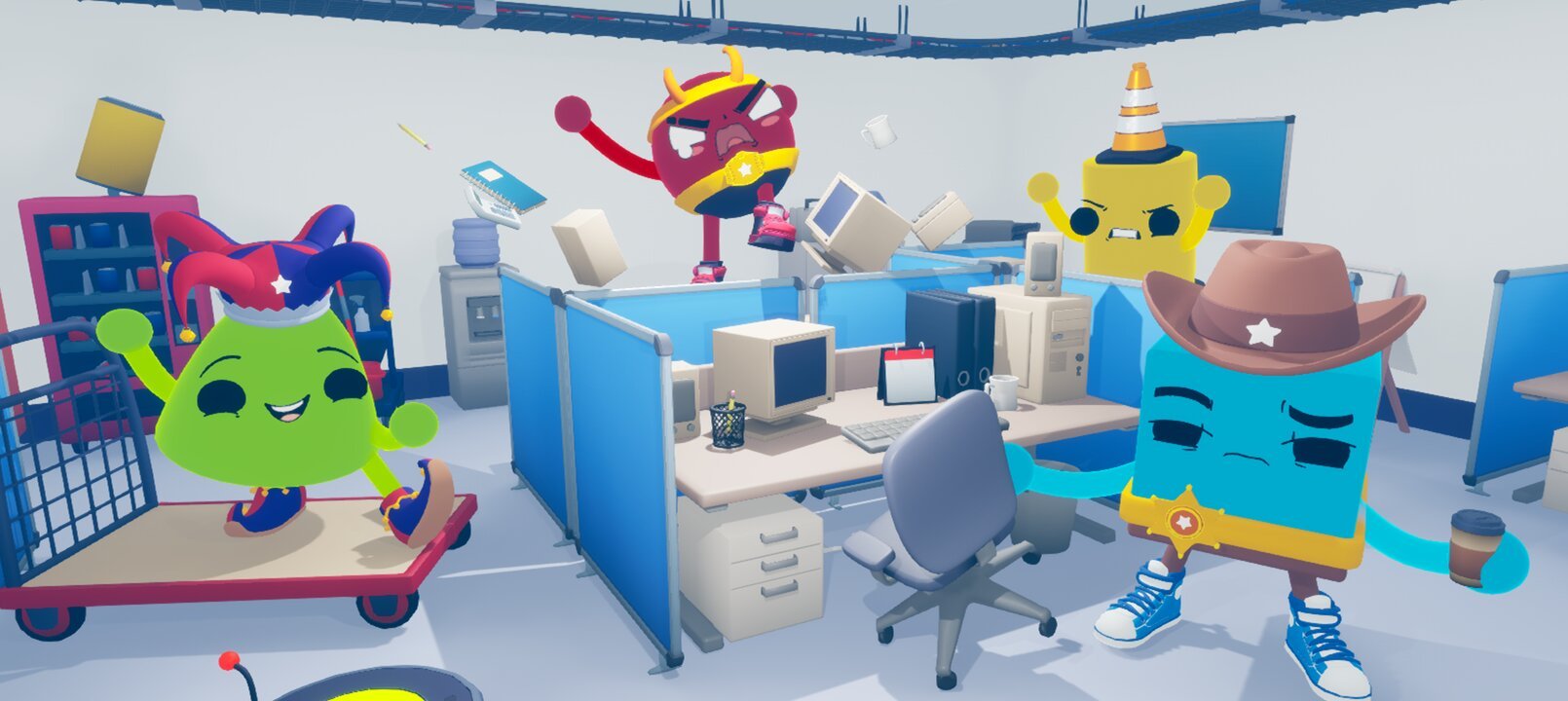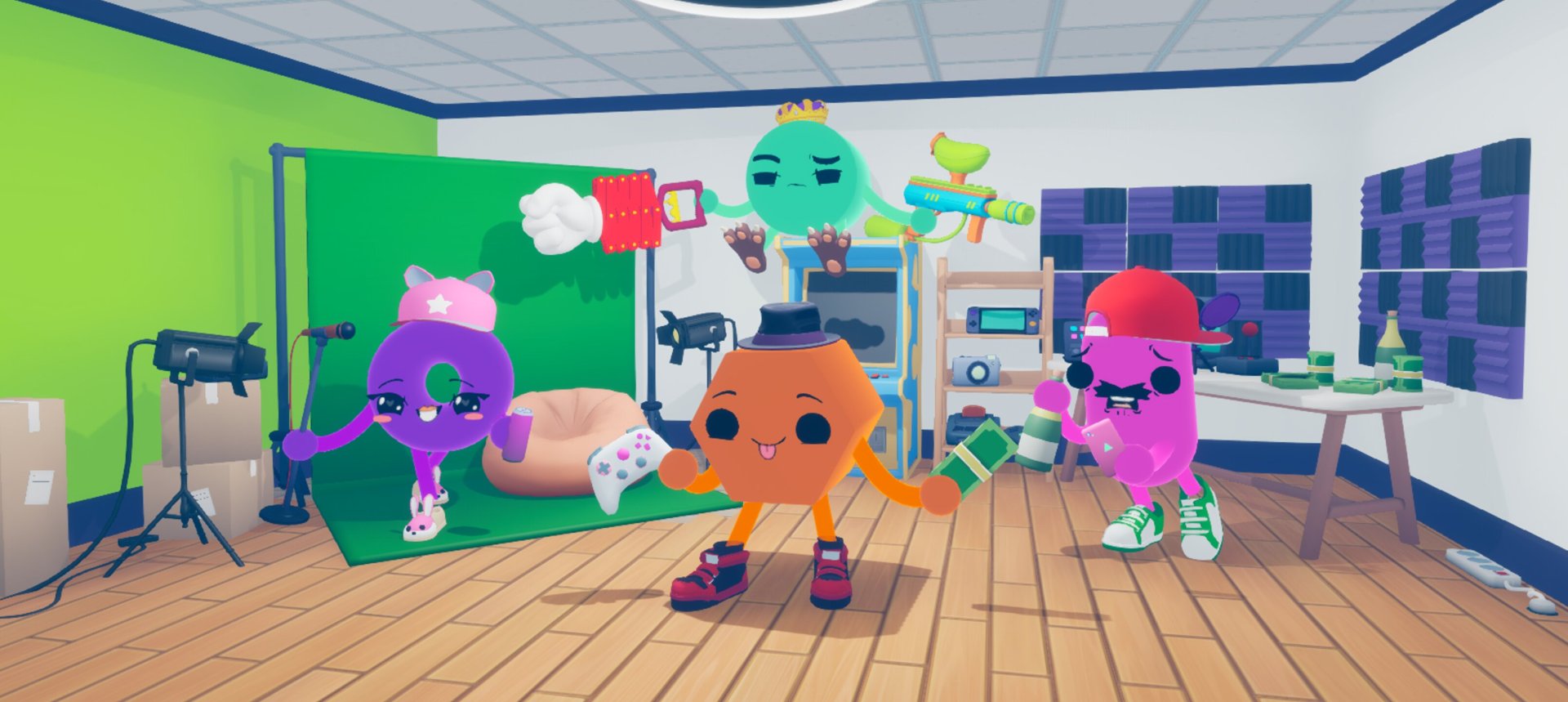ReadGraves, founded in 2021 in Suffolk and led by Samuel Read-Graves, first applied to the Prototype Fund as part of Round 10. More recently their project Task Time was approved for Content Fund support.
Company founder Sam Read-Graves has been in games for well over a decade, in 2014, Sam was featured in Develops 30 under 30. His work on various titles, including Gang Beasts, helped to forge the ReadGraves studio and company ethos of creating ‘novel, offbeat, and irreverent games where players can play’.
The company’s first game, Trolley Problem Inc. (2022) was featured in London Games Festival’s Official Selection and LudoNarraCon 2022. It received critical acclaim for its social commentary and emotionally charged gameplay.
UKGF-funded project Task Time is a vibrant, fast-paced, first-person physics-driven puzzle game that demands quick thinking and creativity. Players are thrust into procedurally generated tasks that are both wacky and challenging, especially with friends, invoking a sense of unpredictability and excitement.
Task Time is now well under development with a planned release in 2025. Taking learning from their first game, a major selling point for the potential success of this game is the inclusion of Twitch integration, something Sam and the team see as critical to audience growth.
The ReadGrave’s journey from prototype developer to growing professional studio has been supported by UKGF; just over a after being founded, the studio applied to the Prototype Fund and used the grant support to hire new creative talent to support the game’s development. The initial grant funded work allowed the team to progress development to vertical slice, then taking the demo to in-person shows to gain realtime invaluable feedback. Towards the end of the funded period, the game and studio were comfortable in a state of readiness to engage with publishers for the next stage of commercial development.
Speaking of this juncture in the company’s journey, Sam said:
“The initial grant from UKGF gave me the financial security to leave my previous job and focus full-time on starting the studio. This support allowed us to confidently progress the game’s demo and hire UK-based talent, which significantly accelerated development and got us to the point where we could pitch to publishers.”
With an initial note of confirmation from a prospective publisher late last year, Sam and the team submitted an application to the then-new Content Fund. Approval for funding came after the panel saw the potential in the game and company, in particular in light of the studio’s growth with the support of a well-respected publisher.
The studio has grown to seven, supporting six UK-based employees and one freelancer. Plans for the future continue to be ambitious while being rooted in the company’s core values and long-term strategic planning for sustainability. We look forward to seeing more form this studio in the years to come.

